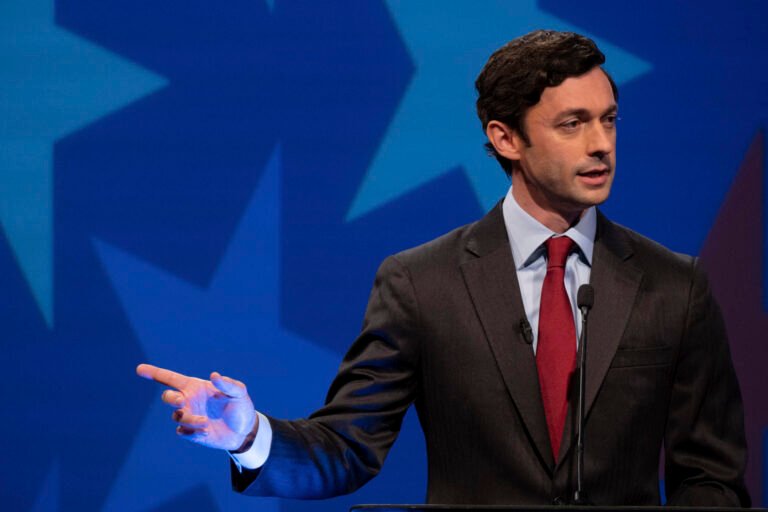Senator Jon Ossoff spoke to a large crowd in downtown Savannah on Saturday, addressing growing concerns about recent changes to Medicaid funding. The event, titled “Rally for Our Republic,” attracted over a thousand attendees who gathered to hear Ossoff’s passionate defense of public healthcare and his criticism of a new federal law that he believes threatens access for millions.
The law in question, called the One Big Beautiful Bill, was signed by President Donald Trump on July 4, 2025. It includes several sweeping changes such as no federal taxes on tips, an extension of the 2017 tax cuts, and increased funding for the military and border enforcement. However, it also contains major cuts to Medicaid, which have sparked concern across the country, especially in states like Georgia that rely heavily on the program.
Senator Jon Ossoff spoke forcefully against the legislation. He argued that the bill gives large tax breaks to wealthy Americans while stripping healthcare coverage from those who need it most. “They’ve destroyed Medicaid and defunded hospitals,” Ossoff told the crowd. “They added $4 trillion to the national debt just to cut taxes for the rich.” He emphasized that the healthcare cuts will harm vulnerable populations, including children, seniors, and rural communities.
Throughout his speech, Ossoff presented stark statistics to highlight the importance of Medicaid in Georgia. He noted that Medicaid currently covers 40 percent of children in the state, 50 percent of all births, and 70 percent of seniors. He warned that the funding cuts will disproportionately affect families and communities already struggling with limited healthcare access. The senator also questioned why American families are being forced to pay thousands of dollars for basic emergency services. “I would like one of my Republican colleagues to explain why an American family has to pay $3,000 to ride an ambulance,” he said. “Why are they canceling programs that help hardworking people?”
The Savannah rally was not only a platform for criticism but also a call to action. Ossoff urged the public to stay politically active and protect essential programs like Medicaid. He framed the debate as one of fairness and national values, saying that healthcare should not be a privilege reserved for the wealthy.
The law’s supporters, however, see the changes differently. Representative Buddy Carter of Georgia, who played a key role in drafting the bill as chair of the House health subcommittee, defended the legislation. He claimed it would reduce waste and fraud in the healthcare system and ensure that only eligible individuals receive benefits. “We got rid of waste, fraud, and abuse,” Carter said. “We made sure there are no ineligible people or undocumented immigrants receiving Medicaid.”
Carter explained that the law includes new rules requiring states to check Medicaid eligibility twice each year. Those who no longer qualify, he said, will be moved to different plans. “We made Medicaid better, we saved it, we sustained it, and we stabilized it,” Carter stated. He insisted that the changes are necessary to protect the program in the long term and to ensure it serves those who truly need it.
Despite these assurances, Ossoff remained unconvinced and doubled down on his argument that the law will harm more people than it helps. He said that many families who are removed from Medicaid won’t have access to other affordable options. “This is not about saving money,” he said. “It’s about cutting help for the people who need it most.”
The event ended with applause and calls for voter engagement. Supporters waved signs demanding the protection of healthcare rights and promising to hold lawmakers accountable. With the 2026 midterm elections on the horizon, Medicaid funding is expected to remain a central issue in political debates across Georgia and the nation. As Senator Jon Ossoff spoke to defend Medicaid, he made it clear that the fight for healthcare access is far from over.







